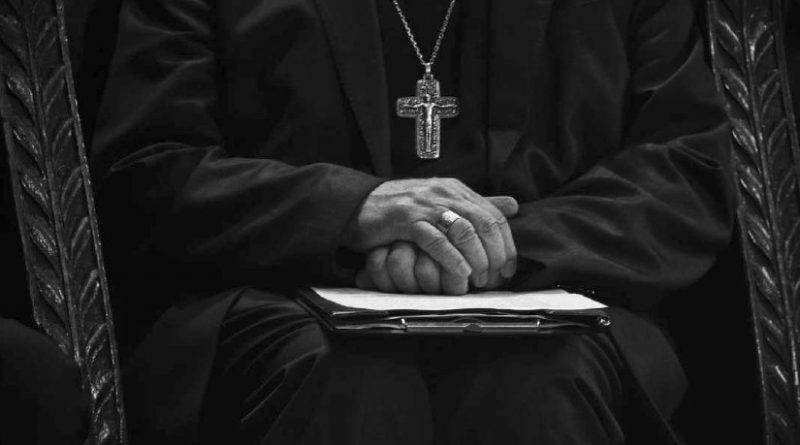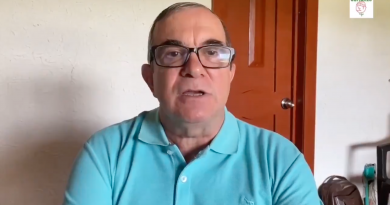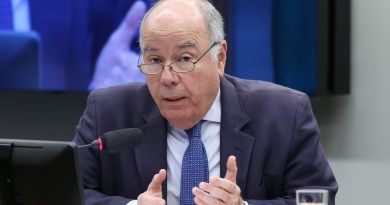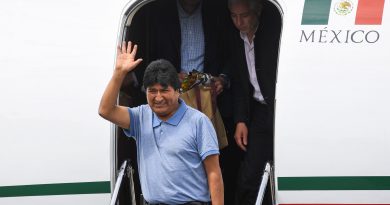Nicaragua: Bishop of the Money Gods
By Fabrizio Casari
The liberation of the Matagalpa cathedral, which had been occupied by Bishop Alvarez, ended an attempt to unleash a climate of confrontation in that city. The coup-supporting bishop is now in the capital, Managua, where he is under house arrest, but enjoying the presence of his family and visits from the prelates of the Nicaraguan Bishops’ Conference.
Contrary to what his fascist friends such as the coup-mongering ideologue Monsignor Baez say, there was no abduction. There was a police detention, confirmed to be an arrest. There is no persecution, much less religious persecution. This was an operation to prevent the commission of political crimes which had taken the form of terrorism. The police intervention, in fact, was necessary to prevent precisely the kind of provocation through which Alvarez sought to unleash activities which would raise tensions to levels that would require police monitoring.
Rolando Alvarez is a bishop known to have fascistic sympathies, a super ego, and be devoid of any spiritual dimension. He is an enthusiastic political actor intent on designing a series of provocations to contaminate the country’s civic life and produce a climate of confrontation before the municipal and administrative elections in November. The plan was to transform Matagalpa’s cathedral into a gathering place and symbol for all of the opposition and pro-coup forces in the city. The idea was for provocations to emanate from the cathedral, in a crescendo of tension that would depict the Monsignor as an opposition leader—a role from which he would also launch his candidacy to head the Bishops’ Conference.
To this end, Alvarez had begun to use his network of private media outlets, which, spewing lies and false alarms, would call attention to him and his private war against the government. In fact, his two roles dovetail perfectly with his ambitions as a political leader and spiritual guide (although in these circumstances the spiritual part is corrupted by him). His penchant for theatrics and the absurdity of his arguments are the key ingredients for the sickly display of his character, fed by his delirious quest for omnipotence.
Part two of the plan was to co-opt a group of fascist priests from other cities who had already distinguished themselves for the roles they played during the attempted coup d’etat of 2018. They did this by fomenting an armed revolt and then providing it with political support, turning their churches into storehouses for weapons, food, money, and propaganda for the coup forces. They even showed up in person at improvised rallies at the roadblocks of hate. There, using money from the US embassy and other US and European agencies, they rallied their mercenary thugs to war, killing, raping, and pillaging Nicaraguans to the edge of the abyss.
When Comandante Daniel Ortega decided that the time was right to restore lawfulness and peace to Nicaragua, the Sandinistas regained control over all the plazas and streets in the country in a matter of hours. That was when, faced with the military might of Sandino’s faithful descendants, the coup mongers (who had been such brave warriors against the defenseless), turned tail and fled on foot to Costa Rica. Nicaragua liberated itself from the nihilistic terrorism and murderous fury of the millionaire prophets, who all quickly fled. There was no longer a trace of those who urged a storming of the presidential house, of those who said thousands of deaths were worth it to get them back into office. A generous, but provisional, amnesty was granted, with clearly stipulated conditions. This was further evidence of the chasm separating Sandinista ideology, politics, and ethics from those of their detractors.
Alvarez is one of the fascist priests that never wanted to acknowledge the end of the attempted coup. His spiritual mentor is the sex maniac, Cardinal Marc Ouellet, and his political guide is the coup-mongering Bishop Baez. Meanwhile, he despises the fragility of Archbishop Leopoldo Brenes and hates the bishops who preach God’s love, such as Monsignor Sándigo. That is why he has been plotting for years to take over leadership of the Nicaraguan Bishops’ Conference. Convinced that he would never be discovered, he has been organizing his small kingdom (which he will soon have to abandon) and formed his own small army that will not fight any battles.
What happened in Matagalpa has reopened the chapter on the Bishops’ Conference of Nicaragua. Its political defeat has had three kinds of consequences. The first is financial and what is closest to the bishops’ heart. The government has cut in half State aid for houses of worship and maintenance of the Bishops’ Conference facilities. The faithful, meanwhile, are taking care not to fill the void.
The second consequence has been a constant loss of the faithful, who have been driven away precisely over the politically hysterical nature of the Nicaraguan Catholic Church. Since 2018 these Catholics have sought out Evangelical churches; in their private prayers, they seek the religious consolation they no longer found in a Church that had become a bunker for coup mongers.
The third consequence is both the premise and result of the previous two: it is the loss of the political role played by the Bishops’ Conference in the country. This role was allowed not only because of the Church’s influence with the faithful, but also because from 2007 to 2018 the Government of Reconciliation and National Unity south to include the Church, representatives of the big business sector (COSEP), and workers from different trade unions in the planning and management of government programs. Such programs continue to bring about the greatest social transformation in Nicaraguan history.
That model of government—conceived and desired by Comandante Ortega—sought to place these intermediate groups near the levers of power, making them almost as important as political-parliamentary representation. This was out of a belief that national unity at all levels was the correct and most important approach to take during a period of political reconciliation among all Nicaraguans. It was a way to put the matter of peace in first place, as the premise and purpose of all other forms of reasoning in a country that had been abused by war imposed from the outside and hunger imposed by the racist oligarchs inside the country.
But COSEP and the Catholic Church were the ones who trashed that model, and they did it underhandedly through deceit and betrayal. It was understandable that COSEP would want to return to the days of latifundios; but the coup-mongering aspirations of the Church were the fruit of pure ideological hatred. At the same time that it purported to mediate the crisis in the country, the Bishops’ Conference of Baez, Alvarez, Mata, and Brenes gave Daniel Ortega an ultimatum: resign and leave the country. They were not mediators but political and ideological parties to the coup attempt who used their role in society to try and turn the people against the government. They did not succeed, except during the time it took to show everyone, from the cleverest people to the most naïve, who the coup plotters really were, what they wanted, and who their political leaders were.
The arrest of a bishop does not happen every day, and evidently this has caused reactions from all quarters. But not Pope Francis, who naturally had a duty to intervene in defense of his bishop. He simply limited himself to saying, “My conviction and my hope is that through an honest and open dialogue, grounds can still be found for respectful and peaceful coexistence.”
It would be better if bishops went back to the business of saving souls, as they used to do, and resigned themselves to the fact that they will have less money to spend and enjoy less of a consensus. Imagine a Nicaragua in which even the stupidest people realize that staging a coup will be impossible. Even the most naïve people will no longer believe that further indulgences will be granted. The Nicaraguan judicial system is not full of people wearing cassocks, and although it does not take a spiritual approach, it has the authority to act. In the afterlife, God will take care of eternal peace; in the here and now, the Sandinistas will protect it.
Translation by Rita Jill Clark-Gollub



